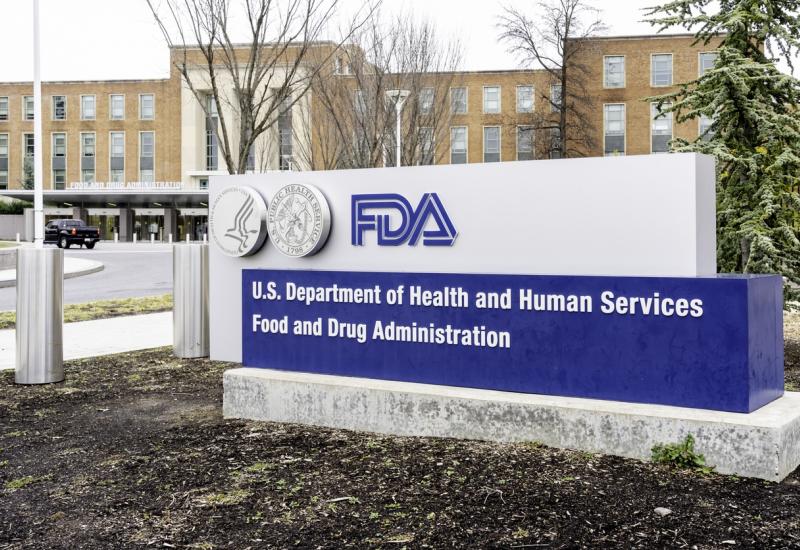
Bristol overtakes Amgen in colorectal
Meanwhile, Bristol’s other competition in this disease looks set to come from China.
Meanwhile, Bristol’s other competition in this disease looks set to come from China.

Amgen was the first to get a KRAS G12C inhibitor to market, in non-small cell lung cancer, but in colorectal cancer the group has been eclipsed by Bristol Myers Squibb.
On Friday, Bristol announced the US approval of Krazati, gained via the $4.8bn purchase of Mirati, in second-line colorectal cancer based on the phase 1/2 Krystal-1 trial in second-line or later KRAS G12C-mutant disease, in which Krazati plus Erbitux showed an overall response rate of 34% among 94 patients. Notably, Amgen’s Lumakras has looked unconvincing here.
Most recently, ASCO heard that Amgen's Codebreak-300 study, testing Lumakras in combination with Vectibix, had not shown a statistically significant improvement on overall survival versus investigator's choice, although it wasn’t powered to detect a difference here. Amgen nevertheless has said it plans to file Lumakras in third-line CRC in the first half.
Codebreak-300 was a controlled phase 3 trial, on the back of which Amgen will, if it files, be pursuing full approval. As such, the accelerated green light Krazati just scored represents an important win; had it been sought much later, the accelerated pathway might no longer have been open.
The most impressive KRAS G12C inhibitor data produced thus far in CRC has come from Roche’s divarasib, which has shown a 62% ORR when combined with Erbitux in phase 1; however, that group’s ASCO presentation focused on NSCLC, where the company plans to go head-to-head versus Lumakras and Krazati in the second line.
Meanwhile the other big KRAS players, Merck & Co and Lilly, have leapt straight into first-line lung cancer. The groups don’t have specific CRC trials ongoing, according to OncologyPipeline; indeed, early data on Lilly’s olomorasib in CRC, reported at ASCO, were disappointing.
The KRAS G12C inhibitor landscape
| Product | Company | Relapsed NSCLC | 1L NSCLC | Colorectal |
|---|---|---|---|---|
| Lumakras | Amgen | AA May 2021 based on Codebreak-100; CRL after questions around confirmatory Codebreak-200 | Ph3 Codebreak-202 completes Feb 2026 | US 2L filing expected H1 2024 based on Codebreak-300; 1L Codebreak-301 not yet recruiting |
| Krazati | Bristol Myers Squibb (via Mirati) | AA Dec 2022 based on Krystal-1; confirmatory Krystal-12 data at ASCO 2024 | Ph3 Krystal-7, data due 2028 | AA 2L Jun 2024 based on Krystal-1; data from confirmatory Krystal-10 due 2025 |
| Olomorasib | Lilly | N/A | Ph3 Sunray-01 trial completes Oct 2026 | N/A |
| MK-1084 | Merck & Co | N/A | Ph3 MK-1084-004 trial completes Feb 2029 | N/A |
| Divarasib | Roche | Ph3 Krascendo-1, vs Lumakras/Krazati, to start H2 2024 | Ph3 to start 2025 | Impressive ph1 data in late-line disease; ph1 1L Intrinsic study ongoing |
Note: AA=accelerated approval. Source: OncologyPipeline & clinicaltrials.gov.
In CRC, Bristol’s competition could come from the east: China’s GenFleet Therapeutics recently disclosed that it had got US FDA go ahead for a late-line pivotal trial of its contender fulzerasib, and is taking the unusual step of testing this as a monotherapy.
Jacobio has also said it plans a phase 3 Chinese trial of its project glecirasib in late-line disease, where this will be combined with Erbitux.
Bristol will now need to replicate Krazati’s CRC benefit in the confirmatory Krystal-10 study. There is also the question of whether the group overpaid for Mirati; Krazati sales totalled just $27m in the first quarter. But at least the company now has a head start over Amgen in this new niche.
1391













